Faceless Together
For a while now I’ve been kind of meaning to write a long, in-depth post about 4chan. With the recent controversy between them and some significant feminist figures in the gaming industry, I think it’s important that I finally go ahead and do this. Since, let’s be honest: any time there’s a big controversy on the internet, 4chan is going to be involved. And yet, a lot of people don’t really understand what 4chan is.

First, I should probably start with some explanation of where I am coming from. When my webcomic first began taking off, I went to great lengths to keep an eye on everyone who discussed it. I like feedback on what I’m doing; the way I see it, the natural progression of an artistic career is that you eventually come to rely on audience feedback rather than individual critics who purport to represent it.
For the most part, this just entailed reading forums and blogs, nothing too complicated. however, there was this one audience segment that continually eluded my sight: 4chan. I could see 4chan links in my referrers, but could never find anything there about me or my work. The threads, with their short, transient lifespans, were always gone by the time I got there.
Well, needless to say, I eventually did catch a Prequel thread, and then more, and gradually over the next few years I learned a lot about 4chan - as well as a lot of other sites, major and minor (this one included). Of them all, though, 4chan stands out to me as having the most interesting culture - as well as being one of the most confusing, misunderstood, and outright scary entities to outsiders. I can understand why they are such a prevalent and relatively powerful force online, and I think it’s important for everyone to understand exactly what 4chan is.
I’m going to be sharing my personal observations and conclusions regarding 4chan. So, buckle up and put on your ethnologist hats, kids, because we’re gonna talk comparative internet cultures!
Anonymity
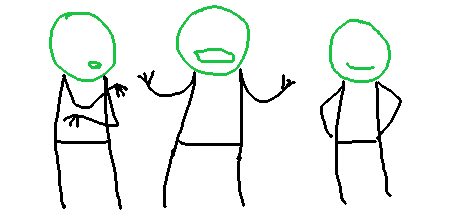
The first thing that always trips people up about 4chan is this idea of an “anon culture”. Like, we all understand the idea of anonymous comments on a site, or accepting anonymous asks on Tumblr, and probably understand that such anonymous submissions are often used to attack someone without suffering any social ramifications or backlash for doing so. But what happens when you bring hundreds of thousands of people together who idolize the idea of anonymity and the freedom it brings?
Well, you get something kind of cool, in my opinion. What you end up with is this concept of a fluid identity. Not only do people on 4chan have no social ramifications for being rude, but they face no social ramifications for being inconsistent with themselves. On 4chan you have no obligation to stick to or defend your past beliefs or opinions, because no one knows they were your past beliefs, nor do you have any incentive to display beliefs that will make you look good - since no one will ever even know it was you.
It’s like… imagine being an invisible person in a room with a bunch of other invisible people. You, as well as each of them, are wearing an (also invisible) random voice-changing mask. From the seemingly empty room, one voice calls out: “so, what webcomics do you guys read?”
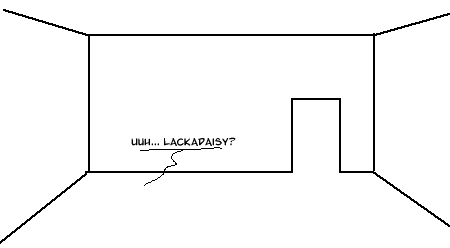
If you were in a public place, you’d pick the answer that makes you look good. It’ll be something pretentious (if you’re around pretentious people), or something relatively normal and acceptable (if you’re around normal people), and you’ll choose the answer that doesn’t ostracize you otherwise negatively affect you socially.
In the room of invisible people, that pressure does not exist. You are speaking to the equivalent of an empty room. You can say the most embarrassing shit you can think of - let them know about that horrible, poorly-drawn DeviantArt comic series you are super into. If they laugh at you for it and you regret your choice to bring it up, then all you have to do is step a few feet to the left and say you like something else. All of a sudden, you and are effectively a different person. Alternatively, you could just own up to your love of this awesome DeviantArt comic. Why not? You can unassociate yourself from these claims at any time.
Or, imagine someone else in the room says they like some poorly-written little ComicGenesis comic, and you decide to rail on them about how horrible it is. Suddenly, they come back at you with this amazing explanation about its hidden nuances, and you realize that you misjudged this little comic and it is in fact the epitome of perfection. If you want, you can just instantly pretend you are a different person who liked the comic all along. You don’t have to feel any shame for wrongly disliking it at first, or any obligation to remain consistent with your earlier beliefs. You just do what you feel like. It can’t hurt you. You are just you.
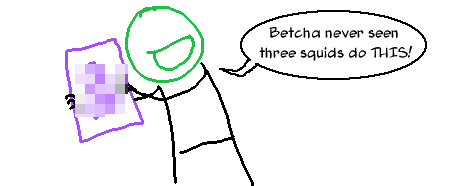
Of course, the consequence of this is that 4chan is completely depraved by normal societal standards. Without the pressure to conform, it turns out people are naturally pretty weird. But, you know, they live it. It’s a culture where nobody is really shamed or hurt for the things they enjoy. Someone can try to shame them, but it’s not going to have any effect and it’s usually more of a joke.
The other consequence of this - and the one that probably scares the most visitors away - is that people can’t really be shamed for being what we would consider horrible people. Someone can be flagrantly racist, homophobic, misogynistic, or whatever, and you can’t really harm them. All you can do is talk to them. Things that would garner death threats on Tumblr or Twitter tend to be short, comparatively nonconfrontational exchanges on 4chan. With many people from Tumblr or Twitter, that does not sit well.
The Anon
Sort of separate from this idea of “anon culture” is this idea of “the Anon” as an individual.
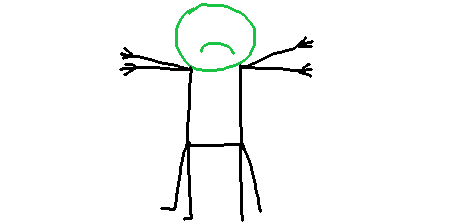
When we get an anonymous hate comment on Tumblr or something, we know that person has an actual identity they are hiding. It becomes a guessing game as we speculate who they “really are”,
With 4chan, however, there is this idea of anonymity as an identity. By posting an anonymous message, you are not “hiding” your identity, you are an Anon. In their art, you typically see the Anon represented as a thin, green-skinned man or woman with a suit and no facial features other than a mouth. It’s an intentionally race- and class-neutral representation of a human - the Anon can be anybody. They celebrate this idea that they are indistinguishable - coming across as one single, undefined individual with a lot of conflicting tastes and perspectives.
This is a somewhat foreign idea on other internet cultures like Tumblr, where individuality is greatly valued. Look at anyone’s Tumblr page - we go to great lengths to define what is us. We often wear a banner declaring our race, gender, and sexual orientation. We list our interests and phobias. We even choose a picture to represent ourselves - mine is a little blue butterfly drawn by me and colored by a friend. Our identity gains strength and influence as we do things that please people, and weakens as we do things that they disapprove of. After posting this, my influence will probably reach 1,100 people, and I’ll do a little dance in celebration of this milestone. But, posting in a random 4chan thread, I would still just be an anon like everyone else.
The World To 4chan
Looking at it from this perspective, you can hopefully start to understand the political angles that someone who regularly participates in 4chan is inclined to take.
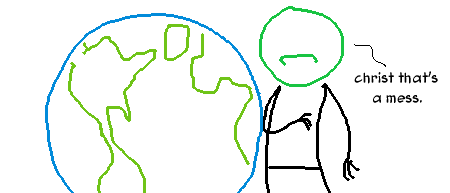
In their own weird way, 4chan is a sort of utopia. They circumvent a lot of the harassment problems that places like Tumblr and Twitter have. You probably aren’t going to see someone on 4chan depressed over harassment they got on 4chan. They also circumvent most peer pressure problems - nobody on 4chan is going to agree with anyone else there just to look good. You are also going to have very few people who hide things, since there’s very little incentive to do so. If you feel a little gay that day and want some hot beefcake, say it, nobody will care and you’ll be happy.
Imagine how the rest of the internet looks to someone who is used to that as their background, though. It causes the person to develop a certain distrust. If someone publicly supports a position and a large group praises and rewards them for it, you wonder if they really believe what they profess. When someone publicly attacks and uses social leverage against a person who disagrees with them, you wonder if the attacker really has a decent argument that could stand on its own. The world becomes a vicious and uncivilized place full of powerful, violent people who might be lying or keeping secret agendas, and you want to look into it. You want to knock people off pedestals, jam their weapons, air their secrets, and leave nothing but a depraved and equal Anon behind.
And you see that in what 4chan does. When a controversial figure declares they were hacked or bullied, 4chan are the ones compiling evidence of whether or not it was faked. When someone tries to defend a position with their social standing or identity, 4chan is the first to stand against them, confronting them as an equal. And when someone preaches what others should be doing, 4chan is the first to get on their case if they don’t do it themselves. They are not a unified group so much as a group of people who share a common mindset - that inequality and its associated social pressures are the root cause of problems. They tend to confront people as equals - and if that doesn’t work, they try to knock them down to their level.
4chan To The World
Equally important to understanding 4chan, I think, is looking at the way 4chan is seen and portrayed by others - especially those who actively oppose its ideals.
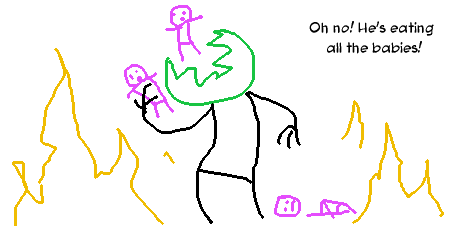
It’s no secret that 4chan is often viewed as this hive of racism, homophobia and misogyny. They’re this chaotic force that harasses feminists, hacks websites, and spreads the personal information of any good people who try to stand up for justice. It’s this vague, faceless force, and it fits the common perception of “evil mooks” we are fed in movies.
I find it kind of a shame that, for all that 4chan’s culture does to maintain the Anon’s gender, race, and class neutrality, the common assumption is that they consist entirely of middle-class, straight, white males. You see this whenever there’s some clash between 4chan and Tumblr - 4chan is the oppressor; some angry, privelaged mass that wants to make life difficult for minorities.
The nature of an anon culture makes it difficult to get actual statistics on 4chan - these are people who are not only anonymous, but often revel in the nature of anonymity. Race is almost impossible to analyze, since someone will only bring it up if it’s relevant to what they’re saying. Gender is easier though - according to 4chan’s advertising page, the userbase is 30% female - if you don’t believe their self-report, the third-party analytics site Alexa.com claims it to be over 50%. I have a few friends who frequent the site’s (often extremely risque) My Little Pony board - they once ran a lingerie selfie contest there, and exactly 50% of the entrants were female.
Overall, you’re looking at this very diverse community that has its minorities effectively erased by its opposition so it can make a better enemy. 4chan knows this, and you can see it leading back into that aforementioned concept of them seeing their detractors as hypocritical and barbaric. You’re not likely to get any big moment where 4chan’s minorities band together and say “hey, we exist!” because so much of 4chan values their anonymity. Gaining social leverage by declaring what you are is the sort of thing they generally stand against.
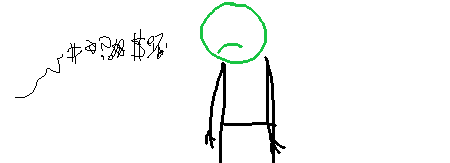
Equally interesting is the way 4chan responds to hatred against them. Though it may not be readily apparent from the outside, they stick by their ideals at least as strenuously as Tumblr does. With the recent controversy in feminist gaming, for example, a number of people from 4chan have been watching Twitter and boycotting any company that claims the attack on The Fine Young Capitalists was justified. There’s been a lot of disappointment any time a loved developer comes to the attack’s defense.
Similarly, there’s a lot of disappointment every time a creator directly speaks out against 4chan. I remember a time a few months back when the author of the comic Paranatural tweeted about how nobody should ever go to 4chan. Over on 4chan, there was a rather touching post where an anon described how it hurt them to have a figure they admire speak out against a community they loved. I actually emailed the Paranatural guy about that, though I never got a reply. I like to pretend it’s because he got a million other emails about it, but it’s probably not.
Open Door
I think the one last thing that is most misunderstood about 4chan is that if you are a horrible person, it can be a tool.
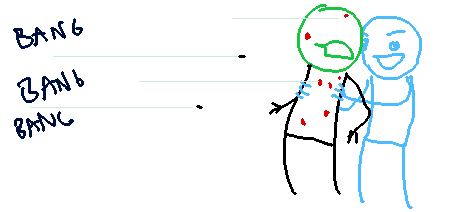
4chan has no barriers to entry. There’s not even a signup process; anyone who wants to can go there and instantly become a part of their community. If you want to do something bad and hide that it was you, you can go to 4chan, make posts about it, and have it look like 4chan is to blame. You will suffer no ramifications for doing so - like any action on 4chan, it is effectively done by “the anon”.
Nothing keeps someone from setting 4chan up as a scapegoat. Heck , you could even go there and pose as multiple people, organizing entire attacks on someone. Even yourself, if you want. This is not a hard thing to do.
The question is why you would do it. Like, 4chan is fundamentally not a bad place. Its one property is that people there interact anonymously - for better or for worse, that ideal of fearlessly being the person you want to be is viciously preserved. It has a very interesting and generally nonconfrontational culture that can still bring ridiculous change or over-the-top revenges when them or their ideals are attacked directly. Between the social equality, lack of fear, and ability to drive action, it sometimes feels like everything Tumblr wants to be.
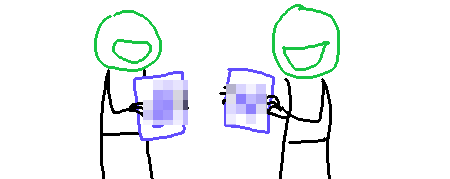
I guess what I’m saying is: be informed. It’s easy to use 4chan as a scapegoat, or construe it as an unstoppable force of evil, but if you really look into it it’s one of the more interesting cultural designs to come out of the internet. It’s worth lurking and understanding where they are coming from on things before dismissing them enemies.